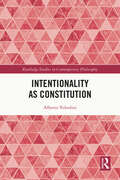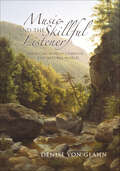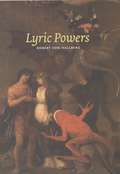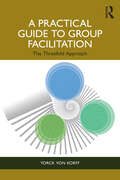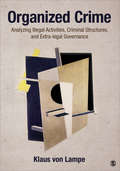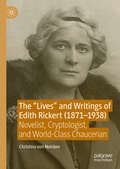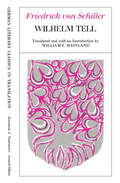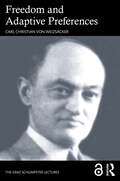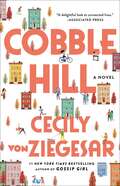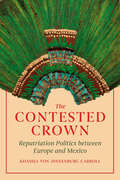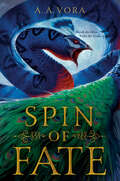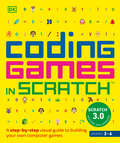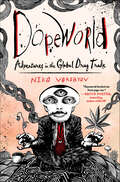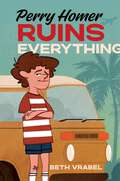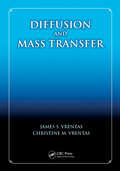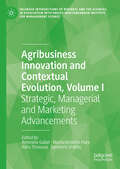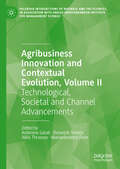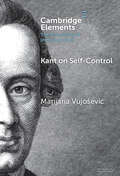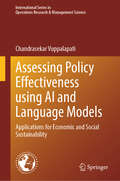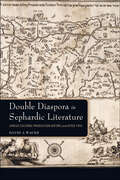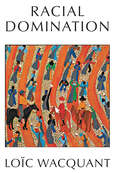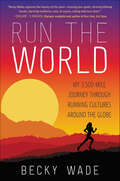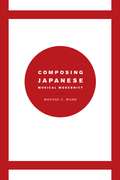- Table View
- List View
Intentionality as Constitution (Routledge Studies in Contemporary Philosophy)
by Alberto VoltoliniThis book develops a novel theory of intentionality. It argues that intentionality is an internal essential relation of constitution between an intentional state and an object, or between such a state and a possible state of affairs as subsisting.The author’s main claim is that intentionality is a fundamentally modal property, hence a non (scientifically) natural property in that it does not supervene, either locally or globally, on its nonmodal physical basis. This is the property, primarily for an intentional mental state, to be constituted by the entities it is about. In the case of intentionality of reference, such constituents are objects, in the sense of individuals; in the case of intentionality of content, such constituents are possible states of affairs as subsisting. Constitution is meant in a mereologically literal sense: those constituents are essential parts of the relevant states. As a result, the theory claims not only that intentionality is relational but also that it is an internal, essential relation holding between an intentional state and its object or proposition-like content.Intentionality as Constitution will be of interest to scholars and advanced students working in philosophy of mind, philosophy of language, metaphysics, and cognitive science.
Music and the Skillful Listener: American Women Compose the Natural World (Music, Nature, Place)
by Denise Von GlahnFor Denise Von Glahn, listening is that special quality afforded women who have been fettered for generations by the maxim "be seen and not heard." In Music and the Skillful Listener, Von Glahn explores the relationship between listening and musical composition focusing on nine American women composers inspired by the sounds of the natural world: Amy Beach, Marion Bauer, Louise Talma, Pauline Oliveros, Joan Tower, Ellen Taaffe Zwilich, Victoria Bond, Libby Larsen, and Emily Doolittle. Von Glahn situates "nature composing" among the larger tradition of nature writing and argues that, like their literary sisters, works of these women express deeply held spiritual and aesthetic beliefs about nature. Drawing on a wealth of archival and original source material, Von Glahn skillfully employs literary and gender studies, ecocriticism and ecomusicology, and the larger world of contemporary musicological thought to tell the stories of nine women composers who seek to understand nature through music.
Wilhelm Meister's Apprenticeship (Princeton Classics #134)
by Johann Wolfgang von GoetheAn authoritative English translation of one of the most important works in the history of the novelWilhelm Meister&’s Apprenticeship (1795–1796), Goethe&’s second novel, is a foundational work in the history of the genre—perhaps the first Bildungsroman, a coming-of-age story focusing on the growth and self-realization of the main character. The story centers on Wilhelm, a young man living in the mid-1700s who strives to break free from the restrictive bourgeois world of his upbringing and seek fulfillment as an actor and playwright. Goethe&’s novel had a huge impact on the Romantics. Hegel, Schelling, Novalis, and Schopenhauer considered it one of the most important novels yet written. Schlegel famously called it one of the &“three tendencies of the age,&” along with the French Revolution and the philosophy of Fichte. And Beethoven, Schubert, and Schumann set poems from the novel to music. It also had a major influence on nineteenth-century British writers, including Thomas Carlyle, who was its first English translator, and George Eliot. Drawn from Princeton&’s authoritative collected works of Goethe, and featuring a new introduction by David Wellbery, this is the definitive English version of a landmark of world literature.
Lyric Powers
by Robert von HallbergThe authority of poetry varies from one period to another, from one culture to another. For Robert von Hallberg, the authority of lyric poetry has three sources: religious affirmation, the social institutions of those who speak the idioms from which particular poems are made, and the extraordinary cognition generated by the formal and musical resources of poems. Lyric Powers helps students, poets, and general readers to recognize the pleasures and understand the ambitions of lyric poetry. To explain why a reader might prefer one kind of poem to another, von Hallberg analyzes—beyond the political and intellectual significance of poems—the musicality of both lyric poetry and popular song, including that of Tin Pan Alley and doo-wop. He shows that poets have distinctive intellectual resources—not just rhetorical resources—for examining their subjects, and that the power of poetic language to generalize, not particularize, is what justly deserves a critic’s attention. The first book in more than a decade from this respected critic, Lyric Powers will be celebrated as a genuine event by readers of poetry and literary criticism.
A Practical Guide to Group Facilitation: The Threefold Approach
by Yorck von KorffA Practical Guide to Group Facilitation introduces a unique threefold approach to facilitation, blending Person-Centered Practice, system knowledge, and method expertise together. It serves as a comprehensive resource for facilitators seeking to enhance their professional skills.The book delves into the significance of Person-Centered Practice as the cornerstone of facilitation, exploring personal facilitator qualities like congruence, empathic listening, and unconditional positive regard, inspired by the principles of Carl Rogers. It successfully integrates Jane Loevinger's personal development theories with facilitator skill development, illustrating the symbiotic relationship between personal growth and effective facilitation. Additionally, the book incorporates Nonviolent Communication (NVC) into the facilitator's toolkit, offering practical strategies for navigating challenging situations. It covers a spectrum of facilitation methods, from structured approaches to the Person-Centered style of Carl Rogers, equipping facilitators to face diverse group contexts.Presenting valuable skills and insights to enhance professional practice, this book will be highly relevant reading for facilitators, mediators, and those offering training. It will also be useful reading for professionals in participatory processes such as coaches, team leaders, organizational leaders, managers, and mentors.
Organized Crime: Analyzing Illegal Activities, Criminal Structures, and Extra-legal Governance (The\cross-border Crime Colloquium Ser. #11)
by Klaus von Lampe2016 Outstanding Publication Award (The International Association for the Study of Organized Crime) Organized Crime: Analyzing Illegal Activities, Criminal Structures, and Extra-legal Governance provides a systematic overview of the processes and structures commonly labeled "organized crime," drawing on the pertinent empirical and theoretical literature primarily from North America, Europe, and Australia. The main emphasis is placed on a comprehensive classificatory scheme that highlights underlying patterns and dynamics, rather than particular historical manifestations of organized crime. Esteemed author Klaus von Lampe strategically breaks the book down into three key dimensions: (1) illegal activities, (2) patterns of interpersonal relations that are directly or indirectly supporting these illegal activities, and (3) overarching illegal power structures that regulate and control these illegal activities and also extend their influence into the legal spheres of society. Within this framework, numerous case studies and topical issues from a variety of countries illustrate meaningful application of the conceptual and theoretical discussion.
Organized Crime: Analyzing Illegal Activities, Criminal Structures, and Extra-legal Governance (The\cross-border Crime Colloquium Ser. #11)
by Klaus von Lampe2016 Outstanding Publication Award (The International Association for the Study of Organized Crime) Organized Crime: Analyzing Illegal Activities, Criminal Structures, and Extra-legal Governance provides a systematic overview of the processes and structures commonly labeled "organized crime," drawing on the pertinent empirical and theoretical literature primarily from North America, Europe, and Australia. The main emphasis is placed on a comprehensive classificatory scheme that highlights underlying patterns and dynamics, rather than particular historical manifestations of organized crime. Esteemed author Klaus von Lampe strategically breaks the book down into three key dimensions: (1) illegal activities, (2) patterns of interpersonal relations that are directly or indirectly supporting these illegal activities, and (3) overarching illegal power structures that regulate and control these illegal activities and also extend their influence into the legal spheres of society. Within this framework, numerous case studies and topical issues from a variety of countries illustrate meaningful application of the conceptual and theoretical discussion.
The "Lives" and Writings of Edith Rickert (1871-1938): Novelist, Cryptologist, and World-Class Chaucerian
by Christina von NolckenThis biography represents a nuanced account of Edith Rickert’s life—and inner life. It follows Rickert’s own writing and draws attention to her life as a writer. Rickert has been long remembered as a medievalist, but she also contributed to American scholarship, pedagogy, and codicology. Born into a family of very modest means in Canal Dover, Ohio, she numbered among the University of Chicago’s earliest doctoral students (1895-1899) and was among the first eight women to reach the top of that University's professorial ladder. She prepared what remains the definitive edition of the medieval romance Emaré. She documented aspects of the medieval, as well as Chaucer’s life, with a historian’s accuracy and a novelist’s insight. In the Ladies Home Journal she wrote on women's issues that remain pressing today. With University of Chicago professor John Matthews Manly (1865-1940), she prepared numerous readers and textbooks, including several that helped putcontemporary British and American literature on the academic map. Again in collaboration with Manly, she was responsible for what has been described as “perhaps the most important of the MI-8 solutions” during World War I,as well as the eight-volume edition of Chaucer's Canterbury Tales (1940). Rickert also published short stories, novels, poems, and essays. As this biography shows, Rickert's achievement as a writer was equal to her work as a literary critic.
Wilhelm Tell (German Literacy Classics in Translation)
by Friedrich von SchillerWhen Schiller completed Wilhelm Tell as a "New Year's Gift for 1805" he foretold that it would cause a stir. He was right. In the midst of Great Power politics a play which drew substance from one of the fourteenth-century liberation movements proved both attractive and inflammatory. Since then the work as become immensely popular. This new English translation by William F. Mainland brings out the essential tragi-comic nature of Wilhelm Tell but also emphasizes its impressive formal unity. Schiller based his play on chronicles of the Swiss liberation movement, in which Wilhelm Tell played a major role. Since Tell's existence has never been proven, Schiller, a historian by profession, felt he had to devise a figure who would bring the uncertainties and contradictions of the various Swiss chronicles into focus. Respected for his courage and skill with a bow, for his peaceable nature and his integrity, Schiller's archer—while always ready to aid his fellows—habitually seeks solitude. In the midst of political turmoil Wilhelm Tell is the nonpolitical man of action. Keenly interested in the problematic interplay of history and legend, Schiller turned it to be dramatic advantage. He constructed his play to illustrate the greatest possible development of the character traits suggested for Tell by the chronicles. The result of Schiller's supreme achievement in historical drama.
Freedom and Adaptive Preferences (The Graz Schumpeter Lectures)
by Carl Christian von WeizsäckerTraditional welfare economics works with the assumption of the fully rational economic agent (homo economicus) whose preferences are fixed: that is, they are not influenced by their economic environment. To the contrary, this book presents a theory of welfare economics that maintains the principles of normative individualism while allowing for adaptive or changeable preferences.Why do economists talk of preferences? In this book, Carl Christian von Weizsäcker shows that the concept is intimately related to freedom of action. The concept of preferences is the mode by which normative economics introduces the idea of freedom or liberty into its theory of human interaction. Moreover, the economic research of recent decades has provided a large amount of experimental and other empirical findings – e.g. the work on bounded rationality – which contradicts the assumption of fixed preferences. This book argues that this large body of findings is consistent with the hypothesis of adaptive preferences. This, together with the proposition that adaptive preferences allow a generalization of traditional welfare economics, has implications for policy applications of behavioral economics based on “normative individualism”. Normative individualism is an approach which intrinsically connects with the value of liberty or freedom. It is argued that normative individualism is indispensable for a society of free citizens, thus providing the foundations of civil liberty.This book will be of great interest to readers of welfare economics, behavioral economics and economic theory.
Cobble Hill: A Novel
by Cecily von ZiegesarThe #1 New York Times bestselling author of the Gossip Girl series brings her sharp-eyed and irresistible wit to this &“quirky novel of lovable misfits&” (Publishers Weekly) chronicling a year in the lives of four families in an upscale Brooklyn neighborhood as they seek purpose and community—until one unforgettable night at a raucous neighborhood party knocks them to their senses.Welcome to Cobble Hill. In this eclectic Brooklyn neighborhood, private storms brew amongst four married couples and their children. There&’s ex-groupie Mandy, so underwhelmed by motherhood and her current physical state that she fakes a debilitating disease to get the attention of her skateboarding, ex-boyband member husband Stuart. There&’s the unconventional new school nurse, Peaches, on whom Stuart has an unrequited crush, and her disappointing husband Greg, who wears noise-cancelling headphones—everywhere. A few blocks away, Roy, a well-known, newly transplanted British novelist, has lost the thread of his next novel and his marriage to indefatigable Wendy. Around the corner, Tupper, the nervous, introverted industrial designer with a warehouse full of prosthetic limbs struggles to pin down his elusive artist wife Elizabeth. Throw in two hormonal teenagers, a ten-year-old pyromaniac, a drug dealer pretending to be a doctor, and a lot of hidden cameras, and you&’ve got a combustible mix of egos, desires, and secrets bubbling in brownstone Brooklyn. &“Breezy, witty, and compulsively fun to read&” (Kirkus Reviews), Cobble Hill is highly entertaining portrait of contemporary family life and the colorful characters who call Brooklyn home.
The Contested Crown: Repatriation Politics between Europe and Mexico
by Khadija von Zinnenburg CarrollFollowing conflicting desires for an Aztec crown, this book explores the possibilities of repatriation. In The Contested Crown, Khadija von Zinnenburg Carroll meditates on the case of a spectacular feather headdress believed to have belonged to Montezuma, emperor of the Aztecs. This crown has long been the center of political and cultural power struggles, and it is one of the most contested museum claims between Europe and the Americas. Taken to Europe during the conquest of Mexico, it was placed at Ambras Castle, the Habsburg residence of the author’s ancestors, and is now in Vienna’s Welt Museum. Mexico has long requested to have it back, but the Welt Museum uses science to insist it is too fragile to travel. Both the biography of a cultural object and a history of collecting and colonizing, this book offers an artist’s perspective on the creative potentials of repatriation. Carroll compares Holocaust and colonial ethical claims, and she considers relationships between indigenous people, international law and the museums that amass global treasures, the significance of copies, and how conservation science shapes collections. Illustrated with diagrams and rare archival material, this book brings together global history, European history, and material culture around this fascinating object and the debates about repatriation.
Spin of Fate (The Fifth Realm #1)
by A. A. VoraIn a world inspired by karma, three teens encounter magnificent beasts, unforgiving magic, and epic battles in this propulsive and wholly original young adult fantasy.&“Evocative of Sanderson, Pullman, and Fullmetal Alchemist, yet at the same time shockingly original.&” —Rosaria Munda, author of FireborneAina&’s world is governed by Toranic Law, a force that segregates people into upper and lower realms. It&’s said that if the sinful lowers commit themselves to kindness and charity, their souls will lighten, allowing them into the peaceful upper realms.But Aina, one of the few lowers to ever ascend, just wants to go back home.Aina is desperate to reunite with her mother, hoping she&’s survived the beasts and wars of her homeland alone. After failing to weigh down her soul with petty crimes, Aina joins a rebel group defying the authorities and bringing aid to those condemned to a life of suffering in the lower realms. Alongside Aina are two new recruits: Meizan, a ruthless fighter trying to save his clan from extinction, and Aranel, a spoiled noble spying for the powers that be.Before long, the rebels find themselves in the middle of a brewing war. On one side, a violent king of a lower realm is bent on destroying Toranic Law; on the other, the authorities of the upper realms will do anything to stay on top. Now the young rebels must face both sides head-on if they want to stop a conflict that could break not only Toranic Law—but the universe itself.Fans of epic, propulsive fantasies like Six of Crows and innovative world-building like Avatar: The Last Airbender will delight in A. A. Vora's ambitious, unmissable debut.
Coding Games in Scratch
by Carol VordermanIf you like playing computer games, why not make your own? This book has all you need to build amazing games, including thrilling racing challenges, zany platform games, and fiendish puzzles.Follow the simple steps to become an expert coder, using the popular programming language Scratch™ 3.0. This updated edition is the first to be tablet-computer friendly, making it even easier to get coding.Improve your coding skills and create your own games, before remixing and customizing them. Jumpy Monkey will show you how to simulate gravity in your games, or give Dog's Dinner a try to learn about collision detection.Pick up the fundamentals of computer programming in steps that make even the most difficult coding concepts fun and easy to understand. Don't just learn how computer code works—understand why it's done that way.Then share your games online and challenge friends and family to beat each other's scores. Once you've whizzed through the book, the possibilities are endless!
Dopeworld: Adventures in the Global Drug Trade
by Niko VorobyovIn this irreverent ode to gonzo journalism, one writer travels the globe to explore the use of recreational drugs in cultures around the world.After I got out of jail, I was determined to find out more about how the issue of drugs not only landed me there, but has shaped the entire world: wars, scandals, coups, revolutions. I read every book, watched every documentary. I saved up to buy plane tickets. I went to Colombia, Mexico, Russia, Italy, Japan and the Afghan border—all in all, fifteen countries across five continents.Call me Narco Polo. Just as Anthony Bourdain's No Reservations did for the world of food, Dopeworld is an intoxicating journey into the world of drugs. From the cocaine farms in South America to the streets of Manila, Dopeworld traces the emergence of psychoactive substances and our intimate relationship with them. As a former drug dealer turned subversive scholar, with unparalleled access to drug lords, cartel leaders, street dealers and government officials, journalist Niko Vorobyov attempts to shine a light on the dark underbelly of the drug world.At once a bold piece of journalism and a hugely entertaining travelogue, Dopeworld is a brilliant and enlightening journey across the world, revealing how drug use is at the heart of our history, our lives, and our future.
Perry Homer Ruins Everything
by Beth VrabelA boy and his con artist family&’s rascally ways keep them on a never-ending vacation full of rip-offs and schemes, leaving him to wonder if it&’s too late to change his fate in this funny, hijinks-filled middle grade romp.Perry Homer is bad news, just like the rest of his troublemaking family. His parents skip out on restaurant bills. Uncle Manny uses his legal training to get free stuff. Perry&’s cousins use their coding skills to scam people. On a disastrous vacation to Lindsborg, &“the nicest town in America,&” Perry&’s siblings steal their new favorite toys from local businesses and set the town&’s whimsical Swedish decorations ablaze. The Homers are worthy of the nickname the local news gives them—the Bad Family—and they&’re having a blast. Perry thinks he could be good. His favorite teacher, Miss Penelope, recommended him for a scholarship at the prestigious Ithaca School, and it&’s his chance to change things. He just has to get home from Lindsborg and show up for the interview. Still, that&’s easier said than done. After the Homers get kicked off their plane, Perry comes up with one last scheme to keep them pointed toward home. But can Perry really make it to Ithaca—or is it his fate to ruin everything?
Diffusion and Mass Transfer
by James S. Vrentas Christine M. VrentasA proper understanding of diffusion and mass transfer theory is critical for obtaining correct solutions to many transport problems. Diffusion and Mass Transfer presents a comprehensive summary of the theoretical aspects of diffusion and mass transfer and applies that theory to obtain detailed solutions for a large number of important problems. Par
Agribusiness Innovation and Contextual Evolution, Volume I: Strategic, Managerial and Marketing Advancements (Palgrave Intersections of Business and the Sciences, in association with Gnosis Mediterranean Institute for Management Science)
by Demetris Vrontis Alkis Thrassou Antonino Galati Mariantonietta FioreAgriculture is the oldest and most traditional of economic sectors, and its business has seen major evolutionary leaps over the past century. Contemporary agribusiness is being influenced and reshaped by technological advancements, geopolitical developments, globalisation, transport and logistics innovations, as well as changes in industry structure and consumer behaviour. Reflecting on these changes and providing a deep dive into this sector, this two-volume scientific works’ collection defines, refines, analyses, and prescribes the evolution of agribusiness in the present and future. Taken together, the books offer a comprehensive conceptualisation of the multifactorial macro, micro and organisational elements of agribusiness, including strategic, managerial, marketing, technological and geo-socio-political forces. Volume I explores the strategic, managerial and marketing aspects of contemporary agribusiness, and descriptively and prescriptively investigates the organisational and immediate industry practices and sectoral forces. Topics covered include circular business models, CSR communication practices, digital marketing, organisational sustainability and contemporary farming systems, to name a few..
Agribusiness Innovation and Contextual Evolution, Volume II: Technological, Societal and Channel Advancements (Palgrave Intersections of Business and the Sciences, in association with Gnosis Mediterranean Institute for Management Science)
by Demetris Vrontis Alkis Thrassou Antonino Galati Mariantonietta FioreAgriculture is the oldest and most traditional of economic sectors, and its business has seen major leaps in innovation over the past century. Contemporary agribusiness is being influenced and reshaped by technological developments, geopolitical developments, and globalisation, as well as transport and logistics innovations, changes in consumer behaviour.Reflecting on these changes and providing a deep dive into this sector, this two-volume work defines, refines, analyses, and prescribes the evolution of agribusiness in the present and future. Taken together, the books offer a comprehensive conceptualisation of the multifactorial macro, micro and organisational elements of agribusiness, including strategic, managerial, marketing, technological and geo-socio-political forces.Volume II focuses on the wider, macro-environmental forces acting upon agribusinesses, exploring the contextual evolutions that impact the sector, and the means, practices and avenues for its development.It includes topics such as digital technologies adoption, supply chain sustainability, big data analytics, women’s agricultural entrepreneurship, and simulation model decision making.
Kant on Self-Control (Elements in the Philosophy of Immanuel Kant)
by null Marijana VujoševićThis Element considers Kant's conception of self-control and the role it plays in his moral philosophy. It offers a detailed interpretation of the different terms used by Kant to explain the phenomenon of moral self-control, such as 'autocracy' and 'inner freedom'. Following Kant's own suggestions, the proposed reading examines the Kantian capacity for self-control as an ability to 'abstract from' various sensible impressions by looking beyond their influence on the mind. This analysis shows that Kant's conception of moral self-control involves two intimately related levels, which need not meet the same criteria. One level is associated with realizing various ends, the other with setting moral ends. The proposed view most effectively accommodates self-control's role in the adoption of virtuous maxims and ethical end-setting. It explains why self-control is central to Kant's conception of virtue and sheds new light on his discussions of moral strength and moral weakness.
Assessing Policy Effectiveness using AI and Language Models: Applications for Economic and Social Sustainability (International Series in Operations Research & Management Science #354)
by Chandrasekar VuppalapatiThis volume uses advanced machine learning techniques to analyze government communication to evaluate policy effectiveness. The book develops policy effectiveness foundation models by cohorting historical budget policies with statistical models which are built on well reputed data sources including economic events, macroeconomic trends, and ratings and commerce terms from international institutions. By signal mining policies to the economic outcome patterns, the book aims to create a rich source of successful policy insights in terms of their effectiveness in bringing development to the poor and underserved communities to ensure the spread of wealth, social wellbeing, and standard of living to the common denomination of society rather than a selected quotient. Enabling academics and practitioners across disciplines to develop applications for effective policy interventions, this volume will be of interest to a wide audience including software engineers, data scientists, social scientists, economists, and agriculture practitioners.
Double Diaspora in Sephardic Literature: Jewish Cultural Production Before and After 1492 (Sephardi and Mizrahi Studies)
by David A. WacksThe year 1492 has long divided the study of Sephardic culture into two distinct periods, before and after the expulsion of Jews from Spain. David A. Wacks examines the works of Sephardic writers from the 13th to the 16th centuries and shows that this literature was shaped by two interwoven experiences of diaspora: first from the Biblical homeland Zion and later from the ancestral hostland, Sefarad. Jewish in Spain and Spanish abroad, these writers negotiated Jewish, Spanish, and diasporic idioms to produce a uniquely Sephardic perspective. Wacks brings Diaspora Studies into dialogue with medieval and early modern Sephardic literature for the first time.
Racial Domination
by Loïc WacquantRace is arguably the single most troublesome and volatile concept of the social sciences in the early 21st century. It is invoked to explain all manner of historical phenomena and current issues, from slavery to police brutality to acute poverty, and it is also used as a term of civic denunciation and moral condemnation. In this erudite and incisive book based on a panoramic mining of comparative and historical research from around the globe, Loïc Wacquant pours cold analytical water on this hot topic and infuses it with epistemological clarity, conceptual precision, and empirical breadth.Drawing on Gaston Bachelard, Max Weber, and Pierre Bourdieu, Wacquant first articulates a series of reframings, starting with dislodging the United States from its Archimedean position, in order to capture race-making as a form of symbolic violence. He then forges a set of novel concepts to rethink the nexus of racial classification and stratification: the continuum of ethnicity and race as disguised ethnicity, the diagonal of racialization and the pentad of ethnoracial domination, the checkerboard of violence and the dialectic of salience and consequentiality. This enables him to elaborate a meticulous critique of such fashionable notions as “structural racism” and “racial capitalism” that promise much but deliver little due to their semantic ambiguity and rhetorical malleability—notions that may even hamper the urgent fight against racial inequality.Wacquant turns to deploying this conceptual framework to dissect two formidable institutions of ethnoracial rule in America: Jim Crow and the prison. He draws on ethnographies and historiographies of white domination in the postbellum South to construct a robust analytical concept of Jim Crow as caste terrorism erected in the late 19th century. He unravels the deadly symbiosis between the black hyperghetto and the carceral archipelago that has coproduced and entrenched the material and symbolic marginality of the African-American precariat in the metropolis of the late 20th century. Wacquant concludes with reflections on the politics of knowledge and pointers on the vexed question of the relationship between social epistemology and racial justice.Both sharply focused and wide ranging, synthetic yet controversial, Racial Domination will be of interest to students and scholars of race and ethnicity, power and inequality, and epistemology and theory across the social sciences and humanities.
Run the World: My 3,500-Mile Journey through Running Cultures around the Globe
by Becky WadeFrom elite marathoner and Olympic hopeful Becky Wade comes the story of her year-long exploration of diverse global running communities from England to Ethiopia—9 countries, 72 host families, and over 3,500 miles of running—investigating unique cultural approaches to the sport and revealing the secrets to the success of runners all over the world.Fresh off a successful collegiate running career—with multiple NCAA All-American honors and two Olympic Trials qualifying marks to her name—Becky Wade was no stranger to international competition. But after years spent safely sticking to the training methods she knew, Becky was curious about how her counterparts in other countries approached the sport to which she’d dedicated over half of her life. So in 2012, as a recipient of the Watson Fellowship, she packed four pairs of running shoes, cleared her schedule for the year, and took off on a journey to infiltrate diverse running communities around the world. What she encountered far exceeded her expectations and changed her outlook into the sport she loved.Over the next twelve months—visiting 9 countries with unique and storied running histories, logging over 3,500 miles running over trails, tracks, sidewalks, and dirt roads—Becky explored the varied approaches of runners across the globe. Whether riding shotgun around the streets of London with Olympic champion sprinter Usain Bolt, climbing for an hour at daybreak to the top of Ethiopia’s Mount Entoto just to start her daily run, or getting lost jogging through the bustling streets of Tokyo, Becky’s unexpected adventures, keen insights, and landscape descriptions take the reader into the heartbeat of distance running around the world.Upon her return to the United States, she incorporated elements of the training styles she’d sampled into her own program, and her competitive career skyrocketed. When she made her marathon debut in 2013, winning the race in a blazing 2:30, she became the third-fastest woman marathoner under the age of 25 in U.S. history, qualifying for the 2016 Olympic Trials and landing a professional sponsorship from Asics.From the feel-based approach to running that she learned from the Kenyans, to the grueling uphill workouts she adopted from the Swiss, to the injury-recovery methods she learned from the Japanese, Becky shares the secrets to success from runners and coaches around the world. The story of one athlete’s fascinating journey, Run the World is also a call to change the way we approach the world’s most natural and inclusive sport.
Composing Japanese Musical Modernity (Chicago Studies In Ethnomusicology Ser.)
by Bonnie C. WadeWhen we think of composers, we usually envision an isolated artist separate from the orchestra—someone alone in a study, surround by staff paper—and in Europe and America this image generally has been accurate. For most of Japan’s musical history, however, no such role existed—composition and performance were deeply intertwined. Only when Japan began to embrace Western culture in the late nineteenth century did the role of the composer emerge. In Composing Japanese Musical Modernity, Bonnie Wade uses an investigation of this new musical role to offer new insights not just into Japanese music but Japanese modernity at large and global cosmopolitan culture. Wade examines the short history of the composer in Japanese society, looking at the creative and economic opportunities that have sprung up around them—or that they forged—during Japan’s astonishingly fast modernization. She shows that modernist Japanese composers have not bought into the high modernist concept of the autonomous artist, instead remaining connected to the people. Articulating Japanese modernism in this way, Wade tells a larger story of international musical life, of the spaces in which tradition and modernity are able to meet and, ultimately, where modernity itself has been made.
